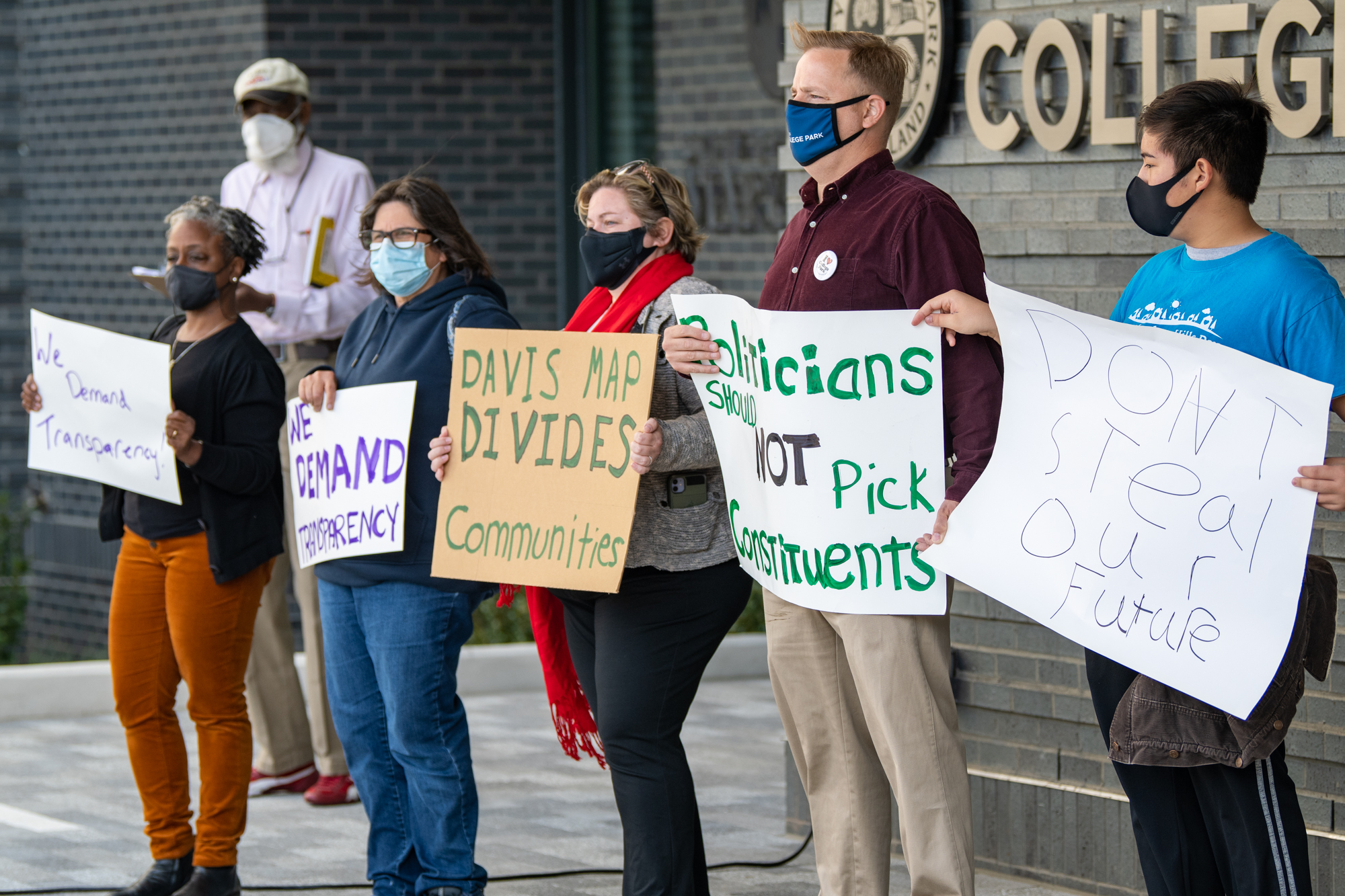Para leer este artículo en español, haga clic aquí.
After nearly six hours of testimony and more than 150 speakers, the Prince George’s County Council voted 6-3 in support of a resolution proposing a new redistricting map at its meeting Tuesday evening.
Council members Thomas Dernoga from District 1, Dannielle Glaros from District 3 and Jolene Ivey from District 5 were the only ones to vote against the bill. District 7 council member Rodney Streeter was not present at the meeting.
At the public hearing, residents took turns speaking — many raising concerns that the map politically gerrymandered their county. Others said that the council wasn’t hearing the community out or that the redistricting process was undemocratic.
Residents started to raise concerns over the redistricting process after District 6 council member Derrick Leon Davis presented a new redistricting map at the end of an October meeting, in contrast to another map which the county’s independent redistricting commission spent several months drawing up.
Local leaders gathered in College Park to protest the new map, which left a sliver of College Park District 1 surrounded by District 3. Council members presented another map Oct. 19, but backlash persisted.
[Prince George’s council moves forward with new redistricting map, but backlash persists]
Several elected officials from College Park spoke at Tuesday’s hearing, including Mayor Patrick Wojahn and four city council members: Fazlul Kabir, Kate Kennedy, John Rigg and Maria Mackie. Stuart Adams and Susan Whitney, who won council seats earlier this month but have not officially started their roles, also spoke at the hearing.
The hearing was slated to start at 3 p.m., but began at 5:30 p.m. Around an hour into the hearing, Alexander Zajac of Greenbelt voiced frustration with the inconsideration of the public’s time, citing the hearing’s delay.
Zajac also said that the map was drawn in secret by six council members without the knowledge of the other four and passed with a bare majority vote.
“These types of procedural issues render the plan invalid,” Zajac said.
Prince George’s County District 3 resident Walker Green was also frustrated with the council’s time management. Green works four jobs and “frankly” did not have the time to wait for so long.
Green said he has yet to hear from anyone in favor of the proposed map.
[Local leaders protest swift changes to proposed Prince George’s County redistricting map]
“Let us be unified in a time of political turmoil,” he said. “We just don’t need this right now.”
Alexandra Bely has lived in College Park for 20 years. When the long-time resident moved to the county for a job at the University of Maryland, Bely deliberately chose to live near campus because she wanted to make the area her work community and personal community.
Bely said the proposed map would rip her community to shreds because of how it splits up the city of College Park.
“If this map is put into effect, it will have negative repercussions on this county long into the future far beyond this election cycle,” she said. “It would be a stain on this county and would demonstrate that Prince George’s County is not dedicated to holding fair elections.”
University Park Mayor Lenford Carey said the proposed map would divide his community, too. He said the University Park town council is unanimously opposed to the map.
Carey said dividing the Langley Park community into two districts is not justified.
“I have heard, so far, no one in favor of these proposals. The question is whether or not you council members care,” Carey said.
Meg Oates of College Park said the map puts places that affect her quality of life — such as the daycare where she takes her daughter, the locally owned businesses she supports, the park where she takes her dog and the trails she runs on — into another district.
Oates said it’s “absolutely deplorable” that the map has made it this far and is still being considered.
“Everybody deserves a council member that represents their community,” she said. “This map fails to provide that for the citizens of our county.”
Emily Canavan from Accokeek was the final speaker from the public that night. She said she listened to the 150 speakers before her and counted zero who think the gerrymandered map is a good idea.
Canavan said she thinks of voting for a council member like planning a family vacation: She compared her neighbors and the area’s constituents to members of her family, with everybody sharing a car and the council member driving.
“In October, you made a wrong turn, and who hasn’t done that,” she said. “Show your constituents now that you’re willing to admit that you made a mistake on this journey, but you’re getting back into the safe lane.”



